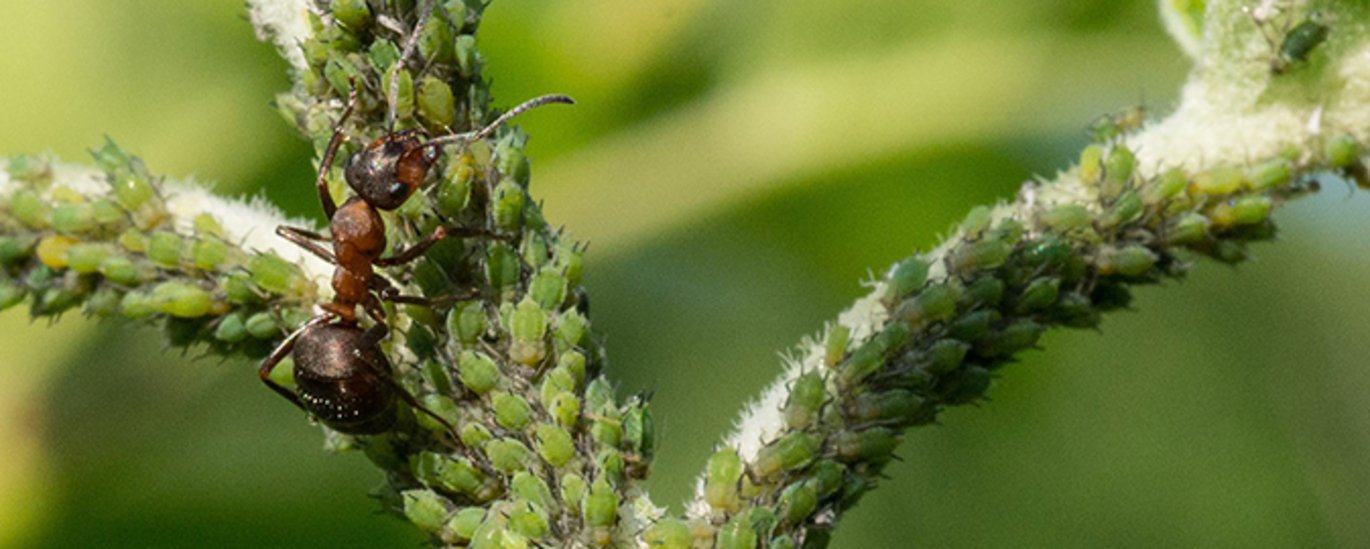Ants will ensure sustainable organic fruit production
The Danish production of organic berries and fruits must not apply chemical crop spray – for that reason the sector lacks effective means to fight pests and plant diseases. If a biological alternative to the chemical substances is to find, the ecologists may stabilize and increase their yields. A new research project will investigate whether wood ants can function as an organic alternative to pesticides.

Ants live in close societies where infection among them is a danger, and therefore they can produce antibiotics, which can fight fungal disease. If the ants leave antibiotic matter on apple trees, for instance, it will reduce the spread of the disease, including the much-feared disease favus. Hence the ants contribute to increase the quality of the organic apples.
ICROFS’ Organic RRD 5 project, Open Field Biocontrol, that has recently been put into operation, has as its purpose, to investigate if wood ants can replace chemical spray. The hypothesis is, that wood ants protect fruits and berries against pests and plant diseases, because the ants feed on other insects and disease tissue, and because they discharge antibiotics, that hampers plant diseases.
The ants are safeguarding aphids
There are also challenges linked to the hypothesis. A former Organic RRD project, Mothstop, proved that the ants were ‘looking after’ green apple aphid, which brought along a high level of aphids infections on trees with ants. The ants, in this way have a negative effect as well, because the aphids can be harmful to the production. Ants are watching aphids, because they harvest and feed on the sugary honeydew, that the aphids secrete. One of the exciting discoveries in the Open Field Biocontrol project is therefore, if one can halt the guarding practice by developing and offer sugary mixtures, that are more attractive than the aphids' honeydew. Like this, the ants will stop aphids-guarding, because they no longer will need honeydew as nourishment. If this succeeds, plantation growers will solely benefit from the ants’ positive effects and thereby achieve direct access to a biological pesticide.
Method
The Open Field Biocontrol project will establish an experimental plantation with apple trees, wood ants and apple aphids together with developing sugary mixtures, that are attractive for wood ants. Tests will shed light on, whether feeding with the artificial sugary mixtures can stop the safeguarding of aphids and if the ants can protect the apples against vermin and diseases.
The goal is an increased production of organic fruits and berries
If the project succeeds, the result can be a greater production of organic fruits and berries without pesticide residues, which is in demand among customers. Simultaneously it can contribute to making the organic sector more attractive, so that breeders chose to reorganize their production to organic. In a bigger perspective it will contribute to less pesticides in the Danish nature, increased biodiversity and a smaller climate footprint.
The Open Field Biocontrol project primarily works on apple trees, but the method is expected to be functionable in most types of multi-annual plant systems.
The project is a part of the Organic RDD 5-program, which is coordinated by ICROFS (International Centre for Research in Organic Food Systems). It has received a grant from the Green Development and Demonstration Program (GUDP) under the Ministry of Environment and Food of Denmark.
Link to Open Field Biocontrol
Link to Mothstop (related project)